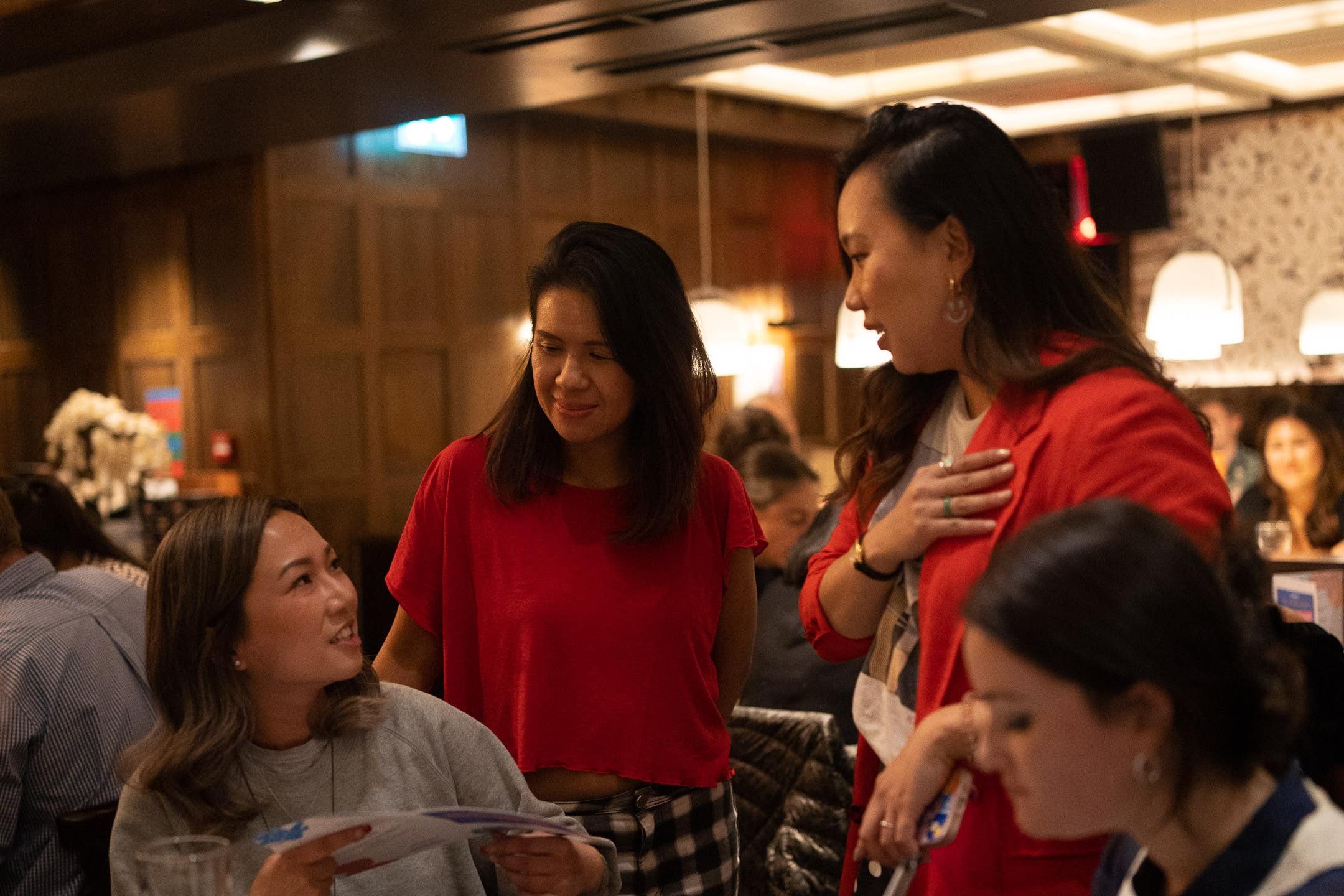Riots ‘return fear’ to East and Southeast Asian community, says advocacy group
The advocacy group offers bystander training to teach people how to react if someone is involved in a hate crime.

Your support helps us to tell the story
From reproductive rights to climate change to Big Tech, The Independent is on the ground when the story is developing. Whether it's investigating the financials of Elon Musk's pro-Trump PAC or producing our latest documentary, 'The A Word', which shines a light on the American women fighting for reproductive rights, we know how important it is to parse out the facts from the messaging.
At such a critical moment in US history, we need reporters on the ground. Your donation allows us to keep sending journalists to speak to both sides of the story.
The Independent is trusted by Americans across the entire political spectrum. And unlike many other quality news outlets, we choose not to lock Americans out of our reporting and analysis with paywalls. We believe quality journalism should be available to everyone, paid for by those who can afford it.
Your support makes all the difference.Recent anti-immigration riots felt like a “return” of the fear that East and Southeast Asians (ESEA) in the UK felt during the pandemic, an ESEA advocacy group said.
Britain’s East and Southeast Asian Network (Besean) is an advocacy group spreading awareness about ESEA communities, which promotes “cross community solidarity” with other ethnic minority groups and created ESEA Heritage Month (ESEAHM), an event throughout September which aims to highlight culture and heritage.
It fears the anti-immigration protests following the deaths of three children in Southport in July have fuelled a returned fear among ESEA communities reminiscent of anti-Asian hate crimes experienced during the pandemic.
During the Covid-19 pandemic, there was a nearly 70% increase in anti-ESEA hate crimes recorded by police in 2020 compared with 2019, according to a study by Voice ESEA, a non-profit organisation aiming to dispel discrimination against ESEAs.
Besean offers active bystander training workshops teaching people of all backgrounds, including those from black, Muslim and ESEA communities, about how to react and help those involved in a hate crime, which the group hopes will empower anyone who feels unsafe or worried.
Amy Phung, 39, co-founder of Besean, believes ESEA communities continue to feel a “heightened sense of anxiety” following the riots.
“It’s almost like a return of that fear that many people experienced during the pandemic, when there was lots of anti-ESEA racism,” Ms Phung, from Putney in west London, told the PA news agency.
“It’s that same kind of thing where it’s ‘I am now a moving target’, and there’s a heightened sense of anxiety, so that’s been really scary.”
She hopes the bystander training will help ESEA communities and other ethnic minority groups to feel “empowered”.
“It’s helping us to tackle this scary moment and to actually help people feel empowered to do something,” she said.
“I think that the message we want to send right now is that people shouldn’t have to feel like they are contributing or useful or valuable to society in order to exist, to live.
“Just being human is enough for you to not deserve to experience violence.”
The team at Besean aims to spread joy and celebrate ESEA communities and this year they have started a new grant in memory of their friend and colleague, Peiwen Tian, who died from bowel cancer aged 29.
The Peiwen Tian grant, a new addition this year, will remain a permanent feature for every ESEAHM, and has been distributed to more than 10 grassroots organisations with each receiving £300.
“She was a member of Besean who sadly passed away this year from bowel cancer,” Ms Phung said.
“She was a climate and social justice advocate and we wanted to continue her memory and legacy.
“We began this grant, this initiative, which we now have awarded to over 10 organisations to help them do that work, to continue her legacy and her name.”
She hopes the grant will help provide “this sense of collective care” for grassroots organisations so they can showcase their work during ESEAHM.
“Peiwen wasn’t just a member of our team, she became our friend and a huge function of Besean is that we are not just an organisation, we are a group of friends who are there to care about each other,” she said.
“It was really important for us to share the success that we have had with other grassroots organisations and in memory of Peiwen, who would have wanted exactly this.”
She added the success of other heritage months, including South Asian Heritage Month and Black History Month are “connected” and “shared” with ESEAHM.
“I think all of our movements are connected,” she said.
“With our theme this year, which is changing seasons, we want to encourage more the sense of cross-community solidarity. For us, the success of Black History Month and South Asian Heritage Month is a shared success.
“We feel a part of that, because it’s important that they exist and that they are pushing for the same message.”